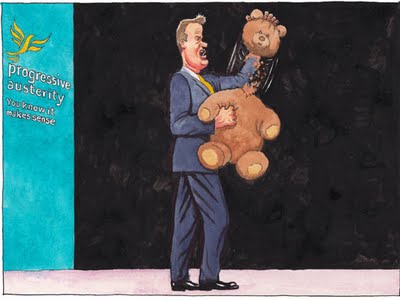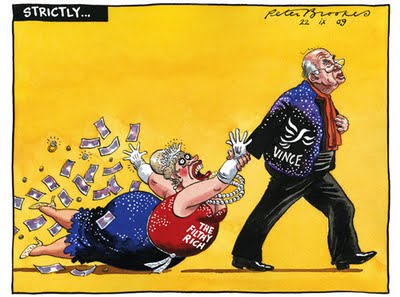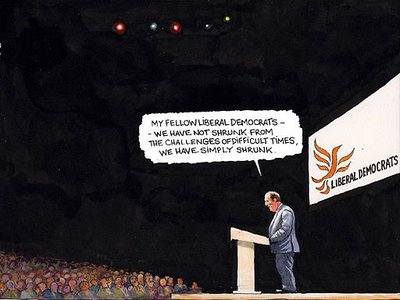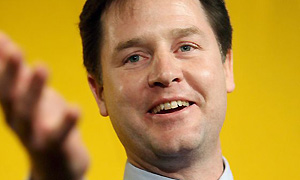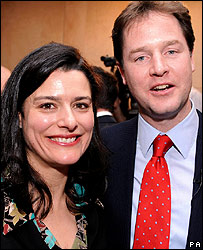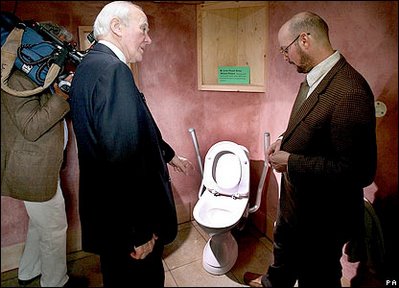The Liberal Democrat dilemma.
As for the Liberal Democrats as a whole, they continue to confuse and perplex rather than inspire confidence in those who are flirting with voting for them. Nick Clegg's latest disastrous decision was to give an interview this week to the Spectator, presumably in a dubious attempt to appeal to those still unsure about the Tories, although you somehow doubt that Speccie readers and subscribers are anything but true blue. Maybe it was a stalking exercise in convincing the Tories that the Libs can be trusted should there be a hung parliament, but even if it was, they must have known that Clegg issuing a paean to Margaret Thatcher over her dismantling of the unions, as well as pledging to cut the deficit wholly through cuts rather than tax rises was hardly going to go down well with committed supporters, nor Labour-leaning floating voters. Perhaps Clegg was thinking that considering the SDP helped split the vote in the crucial 83 election he was on sure ground in praising Thatcher, but the rifts which her reign has left are still with us, and will be for a generation yet.
Clegg himself, and those advising him increasingly seem to the major problem with the party as a whole. He and they don't know what they want to be, and with it what the party is meant to stand for. Even those only slightly interested in politics knew that the main Lib Dem policy of old was a 50% tax rate for those earning over £100,000 a year, and while Labour has introduced something similar as a result of the financial deficit, there's been no similar replacement. The closest the party had was to scrap tuition fees, yet even that is now an "aspiration" rather than a promise.
It's this indecision, reflected in the woeful slogan the party has decided on for for its election campaign, "Change that works for you. Building a fairer Britain", that is more than anything holding the party back. The leadership wants to have it both ways, taking the Tories' crap "vote for change" and combining it with Labour's better but hardly sparkling "A future fair for all". That they couldn't think up anything even slightly original, let alone inspiring is never a good sign for what is yet to come. It already threatens to be a dismal, depressing, underhand and dirty campaign, something which the Lib Dems usually manage to rise above. Not this time it seems.
The conundrum for those of us who've abandoned Labour just as it has abandoned us is that the Liberal Democrats, much as we agree with them on most things, just don't seem to really want to make us truly welcome. In my case it doesn't really make any difference: my constituency is a straight fight between the Tories and Labour, with the Libs a distant third, and the boundary changes seem destined to make it an even safer Tory seat. Whether I vote Lib Dem or Green (although I might be persuaded to waste my vote even further by a far-left grouping, if one stands) isn't going to matter, and increasingly I think I'm going to plump for the latter. Others though will be in a position to make a difference, and beyond a doubt the best possible electoral outcome will be a hung parliament. The leadership and their incompetence are helping to ensure that we have exactly what we don't deserve: either a Labour or Tory outright victory.
Labels: 2010 election campaign, Liberal Democrats, Nick Clegg, politics
